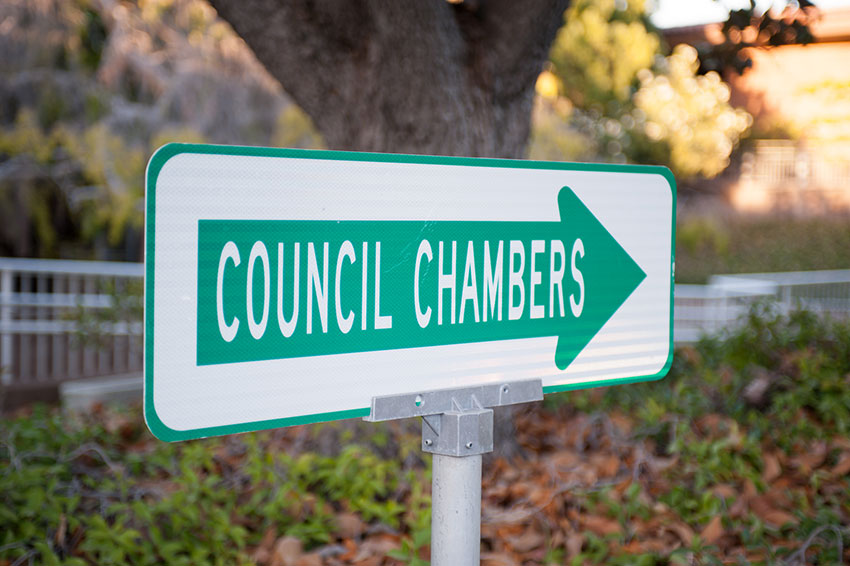Amid warnings to proceed with caution, the Santa Clara City Council approved moving forward with the proposed “agrihood” to be located on Winchester Blvd.
After much long-winded pageantry ushering in the newly elected public officials, the Council voted unanimously to submit the ratio of “affordable” to market-rate housing to the State at its Tuesday meeting. The Council amended the staff recommendation, changing the resolution to only specify that the property will designate a minimum of 165 “affordable” apartments and “at least” an acre of farmland.
Kirk Vartan, a resident of San Jose, proposed the idea more than 15 years ago.
“This is not the concept I put forth. This is not the direction of the concept I put forth,” he said. “Take a breath on this one. If we take the time, we can do something pretty extraordinary on this site.”
Mayor Lisa Gillmor and others expressed concern about getting too detailed with the design of the Core Companies project. Her fear, she said, is once the City agrees to a concept, that the concept would be unable to remain as flexible as the Council would like it to be to ensure it is done properly.
“Are we not shooting ourselves in the foot and limiting it?” she said. “When you put the specifics of a project in there when I don’t believe it needs to be in there … it becomes the reality of it.”
The proposed agrihood will feature 165 “affordable” senior apartment, 160 mixed-income apartments, a farm stand, community building and a 1.5-acre farm.
A Council meeting mainstay, Hosam Haggag, said the City should simply do the bare minimum required by the State, categorizing the development as a “once in a lifetime opportunity.”
He added that the Council should aim to “follow the spirit” of the project and make sure it is “walking the walk.”
“This seems like it is now a done deal. Where is the community outreach?” he said. “It seems like everything is already set in stone.”
City Manager Rajeev Batra repeatedly told the Council that the City is not submitting an application and the concept was simply a rough outline to ensure the city could obtain the land at the previously stated $4.05 million. The city has already met its January deadline to avoid the property reverting to state ownership.
City Attorney Richard Nosky said moving forward with the project with the Council’s changes could result in the city paying more for the land.
Still, Councilmember Dominic Caserta said he doesn’t “want to leave latitude to a state bureaucrat.”
Councilmember Pat Kolstad said the Council is not proceeding in a “cavalier” or “expeditious” way and that saying the Council is “in a hurry” isn’t true considering the project has been in the works for 16 years.
Although Paul Ring, vice president of Core Companies, said his company already did much outreach to ensure the development meets the needs of the community. The Council, at the behest of Vartan, directed City employees to reach out to the Project for Public Spaces to conducts its community outreach.
The Council will meet again Jan. 10.



